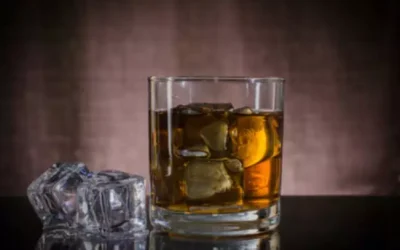Content
Medical treatment may be necessary to detoxify the body of alcohol and to obtain a fresh start. Since many people with alcoholism endure psychological problems, individual or group therapy may help in overcoming addiction. Moreover, in the early stages of recovery, not drinking alcohol can lead to depression symptoms as your brain starts to heal.
- They may also rationalize, or make excuses, for their behavior.
- When a person stops consuming alcohol, there’s a period when their brain hasn’t fully registered this sudden cessation.
- Then, a personalized treatment plan will be created for you and you begin the treatment process.
- Avoiding the relapse stage takes great effort and willpower, making sure you remain committed throughout your recovery and into maintenance can make it less likely.
- Similarly, Psychologists James Prochaska and Carlo DiClemente developed a method in the 1970s for changing behaviors that’s also used in the recovery world.
- There are typically job and relationship changes to create a balanced life.
You will learn the warning signs and the steps that can lead up to a relapse. Whether you seek help voluntarily or are forced by circumstances to enter rehab, your recovery process will begin with a professional treatment program. Amanda Marinelli is a Board Certified stages of getting sober psychiatric mental health nurse practitioner (PMHNP-BC) with over 10 years of experience in the field of mental health and substance abuse. Amanda completed her Doctor of Nursing Practice and Post Masters Certification in Psychiatry at Florida Atlantic University.
Alcohol Withdrawal Symptoms Can Be Fatal
During your first month of recovery, you may start to notice the emotional effects of quitting alcohol. These are all completely normal, and they’re your brain’s way of operating as it begins to heal itself from damage done by alcohol. However, during this period you may also start to develop important benefits of quitting alcohol, such as healthier liver function and longer, more restful sleep. Most recovering alcoholics struggle with temptations and managing triggers during this time, so it’s important to stick to the new schedule and healthy habits.
Because alcohol is a depressant, the body responds by producing more stimulating chemicals. This includes the neurotransmitters dopamine and gamma-aminobutyric acid (GABA). This creation of stimulating neurotransmitters temporarily restores chemical homeostasis.
Maintenance Stage
After an entire month, a person might realize that their liver fat has reduced, therefore increasing the ability to filter toxins out of a person’s body. Additionally, the most remarkable improvement in a person’s skin should be noticed at this four-week mark period. It will be important to identify a healthy, sustainable coping mechanism to help with the stress.
But when alcohol consumption gets out of control, you may find yourself on a dangerous path toward addiction. The person with the drinking problem needs to take responsibility for their actions. Don’t lie or cover things up to protect someone from the consequences of their drinking. Consider staging a family meeting or an intervention, but don’t put yourself in a dangerous situation. If certain people, places, or activities trigger a craving for alcohol, try to avoid them.
Long-Term Health Problems Associated with Chronic Heavy Drinking
You will still almost certainly feel a desire to drink, and that can unfortunately start the whole recovery process over again. For many people, this vulnerable period is marked by feelings of anxiety and/or depression. Many people choose to continue with outpatient treatment to help them on their path to recovery, while others choose to continue independently. The most severe form of alcohol withdrawal is delirium tremens (DTs), characterized by altered mental status and severe autonomic hyperactivity that may lead to cardiovascular collapse. Only about 5 percent of patients with alcohol withdrawal progress to DTs, but about 5 percent of these patients die. At this stage, drinking becomes everything in your life, even at the expense of your livelihood, your health and your relationships.
While the onset of alcohol withdrawal symptoms vary by person, they can start as soon as six hours after your last drink. In other cases, they may take up to 72 hours after your last drink. This will ultimately depend on how much you’re used to drinking, how long you’ve been drinking heavily, your medical history, and genetic factors.
Alcohol Recovery Stages: Days, Weeks, Months, Years
Researchers noted that the cerebellum was quick to respond to a lack of alcohol, displayed a noticeable improvement in motor skills. Cortical areas of the brain that involve complex thinking were slower to heal. Immune system
Drinking too much can weaken your immune system, making your body a much easier target for disease. Chronic drinkers are more liable to contract diseases like pneumonia and tuberculosis than moderate drinkers. Drinking a lot on a single occasion slows your body’s ability to ward off infections–even up to 24 hours after getting drunk. Blacking out from drinking too much is a warning sign of this stage, along with lying about drinking, drinking excessively, and thinking obsessively about drinking.

How individuals deal with setbacks plays a major role in recovery. A setback can be any behavior that moves an individual closer to physical relapse. Some examples of setbacks are not setting healthy boundaries, not asking for help, not avoiding high-risk situations, and not practicing self-care. A setback does not have to end in relapse to be worthy of discussion in therapy. Occasional, brief thoughts of using are normal in early recovery and are different from mental relapse. They feel they are doing something wrong and that they have let themselves and their families down.
